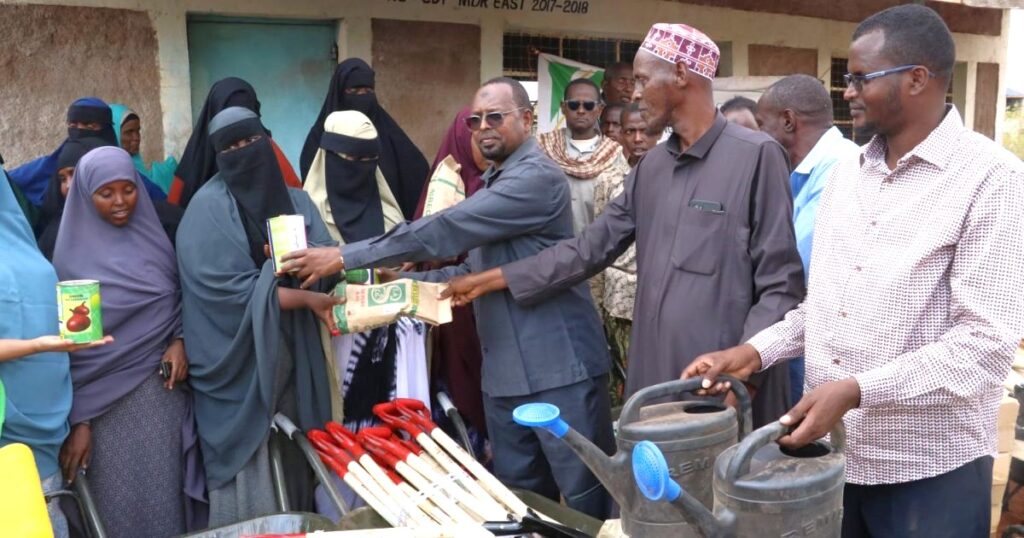In the wake of persistent drought and growing food insecurity, communities in Mandera County are making a significant shift from their traditional pastoralist livelihoods to farming and agriculture. This transition marks a crucial adaptation strategy aimed at enhancing food security and resilience in one of Kenya’s most arid regions.
The movement towards agriculture is being supported through collaborative initiatives involving local authorities and non-governmental organizations. Under an ongoing resilience program, more than 480 crop farmers, 150 fodder farmers, and 165 kitchen garden farmers across Mandera East, Mandera North, Lafey, and Banissa sub-counties have already received agricultural support.
To bolster this agricultural transformation, the program is supplying farmers with certified, drought-tolerant seeds and essential farming tools in preparation for the upcoming planting season. The initiative’s primary goal is to build long-term food security by improving agricultural productivity and encouraging the adoption of climate-smart farming practices tailored to the county’s harsh and dry environment.
Among the distributed supplies are seeds of drought-resistant crops such as maize, sorghum, cowpea, watermelon, and Sudan grass. These are specifically chosen for their ability to thrive in Mandera’s semi-arid conditions. In addition to seeds, farmers are receiving a variety of farm tools to help them cultivate their land more efficiently, boosting the likelihood of better yields even in challenging weather conditions.
Local leadership has expressed strong support for the shift, emphasizing the importance of agricultural resilience as a pathway to a more secure future. Authorities are urging farmers to make full use of the distributed resources, stressing the urgency of timely planting and the potential of this opportunity to transform local livelihoods. With the anticipated onset of the long rains, residents are hopeful for a fruitful planting season that could significantly reduce dependency on food relief programs.
Beyond conventional crop farming, communities across Mandera are also embracing diverse agricultural practices. Fodder production, small-scale horticulture, and dryland farming are gaining popularity among residents. These methods, tailored to the region’s arid conditions, are proving viable and sustainable, offering new income sources and food options for households previously reliant on livestock.
Kitchen gardening is another growing trend, especially among women and youth, offering a steady supply of vegetables for family consumption and small-scale sales. These gardens not only enhance nutritional intake but also provide economic empowerment in a region where job opportunities are limited.
The supporting organizations have pledged continued engagement with local communities to ensure the long-term success of these agricultural efforts. Training programs, technical assistance, and follow-up support are being provided to equip farmers with the knowledge and skills needed to maintain and expand their farming ventures. The overarching message is one of sustainability and self-reliance—empowering residents to take charge of their food systems in the face of ongoing climatic challenges.
As Mandera’s residents adapt to the new realities brought by climate change and reduced pastoral opportunities, farming is emerging as a beacon of hope. This agricultural shift not only promises improved food availability but also fosters greater community resilience and economic stability for the future.

